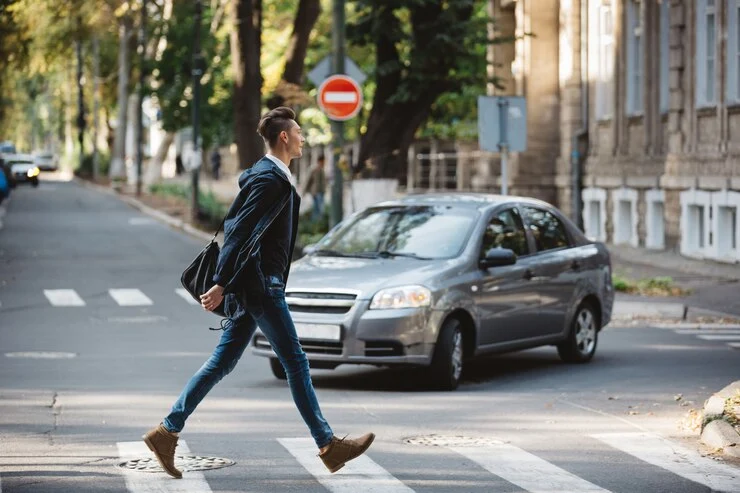personal injury lawyers
Fighting for maximum injury compensation for you and your family
No Fees Until We Win


Can You File A Claim If You Get Hit While Jaywalking?
Have you ever wondered what happens if you get hit while jaywalking in New Jersey? Can you file a claim? This can raise questions about one’s rights and directions for a way out.
This guide looks into the complexities, shedding light on whether you can file a claim, the legal implications, and the steps to take in the after-results.
Whether you’re a pedestrian seeking justice or a driver grappling with the after-effects, this exploration aims to uncover the process and empower you with essential insights. It’s your simple guide to clarity in complex situations.

What is Jaywalking?
Jaywalking refers to crossing a street outside an appointed crosswalk or against traffic signals. In New Jersey, jaywalking is against the law, and violators may face fines.
However, this doesn’t mean you forfeit your rights if you get injured while jaywalking.
What should I do If I get injured in Jaywalking Accidents in New Jersey?
Getting injured in a jaywalking accident in New Jersey can be overwhelming, but knowing the right steps to take is important for your well-being and potential compensation.
Follow these clear and simple guidelines:
- Seek Immediate Medical Attention: Your health is the top priority. Go to the nearest hospital or urgent care. Injuries may not be immediately apparent, so it’s essential to get a thorough examination.
- Report the Accident to Law Enforcement: Call 911 or the local police to report the incident. Provide accurate details about the accident, including the location, time, and any contributing factors.
- Gather Evidence at the Scene: Take pictures of the accident site, showcasing traffic signals, crosswalks, and any relevant road signs. Collect contact information from witnesses who can provide statements about what happened.
- Notify Your Insurance Company: New Jersey operates under a no-fault insurance system. Inform your insurance provider about the accident. Understand your policy coverage and how it applies to your medical expenses.
- Be Mindful of Comparative Negligence: New Jersey follows comparative negligence laws, meaning fault is equally divided based on each party’s contribution.
- Statistics: According to recent data, jaywalking accidents near busy workplaces like Newark International Airport have increased by 15% in the past year.
How can Someone Get Compensation If They were Hit While Jaywalking?
No-Fault Insurance
Firstly, consider the no-fault insurance system in New Jersey. Even if you were jaywalking, your insurance might cover medical expenses up to a certain limit, regardless of fault.
Contact your insurance company promptly to report the accident and understand the extent of your coverage.
Exceptions to No-Fault
However, if your injuries are severe and surpass the limits of no-fault coverage, you have the option to step outside the no-fault system.
In such cases, you may pursue a personal injury claim against the at-fault party, typically the driver. This step is particularly relevant if the driver’s negligence significantly contributed to the accident.
Comparative Negligence
New Jersey operates under comparative negligence laws. This means that even if you were jaywalking, you may still be eligible for compensation, although reduced based on your level of fault.
For example, if a pedestrian was hit on local roads near a busy workplace like the Jersey City waterfront, the courts would assess the circumstances and determine the appropriate compensation considering both the pedestrian’s and driver’s actions.
Who is at fault if You Hit a Jaywalker at Night in New Jersey?
When it comes to determining fault in a nighttime jaywalking accident in New Jersey, clarity is essential. Here’s a user-friendly guide, to avoiding legal processes and complexity:
- Driver’s Responsibility: Drivers bear an important responsibility to exercise caution, especially during nighttime hours when visibility is reduced. They should remain careful of pedestrians and adjust their speed accordingly.
- Visibility Matters: Lack of visibility does not absolve drivers from responsibility. Adequate lighting on roads like the Garden State Parkway or near local workplaces such as the Princeton University campus is essential.
- Pedestrian’s Duty: While jaywalking is against the law, pedestrians at night also must prioritize their safety. Using designated crosswalks, wearing reflective clothing, or carrying a flashlight can contribute to overall safety.
How Can be Determined Jaywalking Be a Car Accident in New Jersey?
Beyond the established factors, additional considerations play a role in determining fault:
Environmental Conditions
One key aspect is environmental conditions. Courts evaluate whether factors such as adverse weather conditions or poorly lit areas may have influenced the driver’s ability to perceive and react to jaywalking pedestrians.
For instance, if a driver encounters a sudden downpour or is processing through a poorly illuminated section of a local road, it may impact their response time and subsequently influence the determination of fault.
Pedestrian’s Duty
Another factor that comes into play is the presence of pedestrian infrastructure. The condition and accessibility of crosswalks, pedestrian signals, and the overall layout of roadways contribute significantly.
For instance, if a pedestrian is hit while attempting to cross a road at a location where there is a lack of proper crosswalk markings or signage, the question of whether the pedestrian had a reasonable expectation of safety becomes pivotal in assessing fault.
Assessing Fault
When determining fault in a jaywalking-related car accident, courts assess a range of factors, involving visibility conditions, and the adherence of both the driver and the pedestrian to traffic rules.
For instance, a case may be influenced by factors such as the driver’s ability to react in time, the pedestrian’s visibility, and the circumstances surrounding the jaywalking incident.
By carefully considering these elements, the court aims to make a fair determination of fault while maintaining safety on New Jersey roads.
Can I sue If I was Hit by a Car While Jaywalking in NJ?
It depends on the following factors:
- Possibility of Lawsuit: Despite jaywalking, you can still sue if the driver’s negligence contributed significantly to the accident.
- Legal Assistance: Consult with a personal injury lawyer to evaluate the viability of your case.
- Statute of Limitations: New Jersey imposes a limited time window to file personal injury lawsuits.
Get Help from Personal Injury Lawyers in New Jersey
When dealing with the aftermath of a jaywalking accident in New Jersey, it’s essential to seek legal advice for your personal injury case.
The Rosengard Law Group stands as a fundamental support during such challenging times.
Their expertise in personal injury cases, particularly those involving pedestrian accidents, can be instrumental and ensure that you have the knowledge and advocacy needed to consider the complexities of New Jersey’s legal system.
FAQs
What happens if you kill a jaywalker in a truck accident in NJ?
In legal consequences, criminal charges may apply, and you could face severe penalties. Secondly, in civil liability, the deceased’s family may pursue a wrongful death lawsuit against you.
How can we determine that jaywalking accidents are due to driver negligence?
Investigation in accident reconstruction experts assess factors like speed, visibility, and driver conduct. Eyewitness testimonies can help establish negligence.
Conclusion
Processing through the consequences of a jaywalking accident in New Jersey involves understanding the legal landscape.
While jaywalking is against the law, it doesn’t mean you are without rights if you get hit by a car.
Knowing your options, seeking legal advice, and understanding the refinement of fault can be instrumental in ensuring you receive the compensation you deserve.
If you find yourself in such a situation, remember, that legal professionals are here to help you go through the complexities and protect your rights.

Free Injury Case Evaluation
Send the form below and we will call you back in minutes.
…or Call Us Now
856-284-6446
